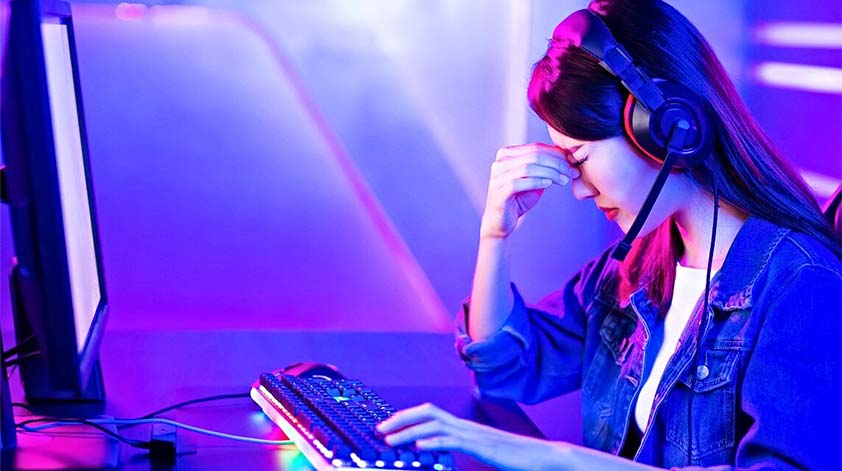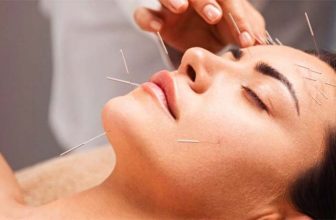
Living with the coronavirus lockdowns has led to many changes in terms of how we live as a society. One of the biggest changes is the significant increase in people working from home. As a consequence, the amount of time we spend on our smartphones, laptops, tablets and TV’s has dramatically increased.
Moreover, our exposure to the blue light from these devices has also increased. This is problematic for many as overexposure to this light has been associated with sleeping problems, decreased productivity and headaches. If you’re like me you probably have no idea about what this type of light is or how it can affect you on a daily basis. In that case, follow on for Blue Light: 3 Dangers and How to Minimise Your Exposure to Them!
What is Blue Light?
Blue light is one of several colours that make up the visible light spectrum (a wavelength of electromagnetic waves that can be detected by the human eye). The different colours of visible light vary in wavelength and energy level with blue light consisting of shorter wavelengths and a very high energy level. In fact, this light is only a little longer than ultraviolet (UV) rays which are commonly known to damage your skin and eyes.
Blue light is naturally everywhere but with the increased use of technology we are being exposed to it at an unhealthy level. Many devices that use light-emitting diodes (LED’s) such as computers, mobile phones, laptops, TV’s and tablets (anything with a screen really) emit it.
How Does it Affect Your Eyes?
The problem with using blue light emitting devices is the close proximity they are to our eyes in addition to the length of time we use them for. A recent study found that almost a third of us have used these devices for 9-11 hours a day (myself included) with some even reaching 12-14 hours a day.
This type of light can pass through protective structures in the eye such as the cornea and lens. This means that the light sensitive retina at the back of the eye is exposed. There is evidence to suggest that exposure may increase the risk of age-related macular degeneration which is a disease of the retina that can permanently alter an individual’s vision.
The Negative Effects of Prolonged Blue Light Exposure
Poor Sleep – Using your phone or laptop at night might seem harmless but in fact it can disrupt your circadian rhythm which is responsible for your sleep-wake cycle. Blue light as been shown to slow/stop the release of melatonin which is a hormone that helps us sleep.
Digital Eye Strain – Extended use of devices such as smartphones, tablets and laptops can cause eye strain. As a result, you might suffer from dry and tired eyes, headaches and poor concentration.
Poor Productivity – The combination of poor sleep and digital eye strain can really have a detrimental effect on one’s work productivity. You may find it hard to focus on a task, suffer from mental fatigue or quickly lose interest after looking at a screen after a certain amount of time.
Ways to Minimise Blue Light Exposure
Thankfully there are many ways you can reduce your exposure. From my personal experience, the use of blue light blocking glasses has helped me drastically improve my work output. Before I started using them I’d often lose my concentration far too quickly when trying to write assignments or reading articles for my degree.
I was shocked at how effective they were and would highly recommend purchasing a pair to anyone who might relate to the same problems I had. Other ways of reducing exposure could include taking regular breaks away from your screen, installing blue light blocking software (some devices have this optional feature built in) or using low blue light bulbs.
Hopefully this article has helped your understanding of blue light and why you might find it beneficial to reduce your exposure. Small changes such as avoiding bright screens a couple of hours before bed, wearing blue light blocking glasses or changing the display settings on your device to a warmer tone can significantly improve sleep quality and productivity during the day.
Everyone is different and what may work for your friend may not work for you, so my advice would be to find out and do what works best for you! Got something to say on the subject of blue light exposure and its effects? Let us know in the comments below, and join in the conversation on Facebook, Twitter & Instagram!









